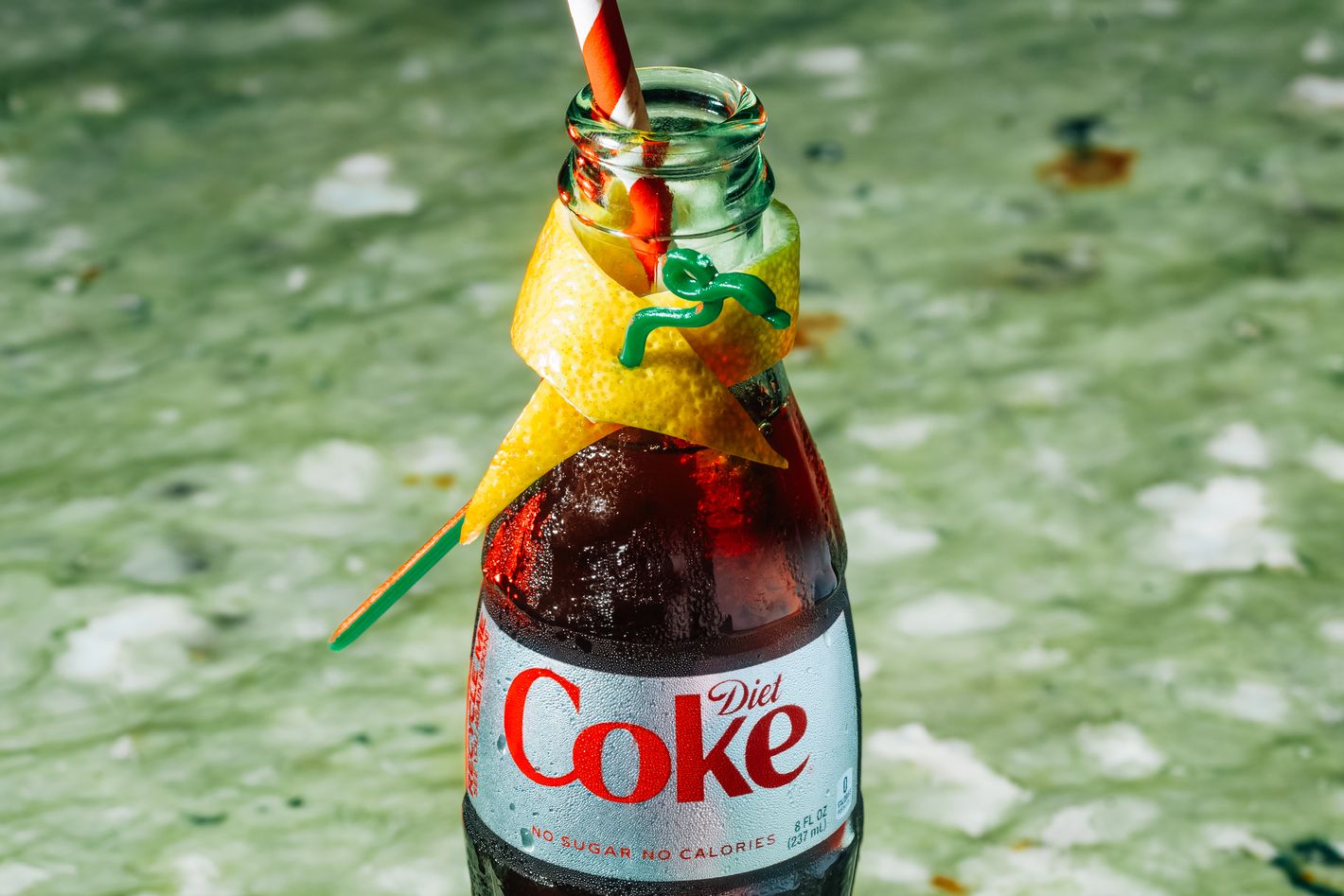when you want, where you want.
CJ Television
Modern Cocktails Taste Like Food. This One Tastes Like Diet Coke.
 Photo: Nick Johnson/Nick Johnson
Photo: Nick Johnson/Nick Johnson
Diet Coke is the one product that every bar should keep in stock, no matter what. Substitutes won’t do because nothing else approximates the chemical sweetness of Diet Coke itself, which is probably why the beverage doesn’t find its way into too many actual cocktails beyond a Jack and Diet. Balancing more complex flavors with every co-worker’s preferred afternoon pick-me-up is tricky, largely because Diet Coke was engineered to taste perfect on its own.
This didn’t deter Bryan Schneider, the creative director at the Quality Branded hospitality group, who created the Amalfi Diet for the company’s Columbus Circle restaurant, Bad Roman. When I ordered one off the summer-specials menu, a bartender appeared with a glass bottle of Diet Coke wreathed with a strip of lemon peel pinned onto itself with a green serpentine pick. Behind the scenes, a portion of the soda had been replaced with a mix of lemon juice, limoncello, and lemon vodka (Ketel One Citroen, in this case). It tasted, well, like Diet Coke and lemon, followed by a quick-hit buzz. I drank it all in seven minutes.
Bad Roman is the restaurant that gave the world an “appetizer” of pepperoni cups dipped into ranch dressing, so one might be forgiven for thinking they’d be all-in on the wave of gonzo, food-flavored drinks that has swept across the city and given us cocktails that taste like pizza, Waldorf salads, roasted corn, or a Faicco’s sub. The Amalfi Diet, by contrast, is actually refreshing.
Schneider says he modeled the drink on two ideas: the Spaghett, which is kind of like an Aperol Spritz made in a bottle of Miller High Life; and the Cha-Chunker drinks once served at the now-closed Liquorette, wherein a machine stamped a wide opening into cans of pineapple juice or soda that could hold inverted mini-bottles of liquor and were then “dressed up on the outside of the can with garnishes.” Schneider’s goal, he says, was to make a “mashup of this Italian-inflected cocktail and then dressing up a very well known bottle and putting our own stamp on it.”
Giving the high-low highball a lemon-centric name that might double as a best-selling aspirational cookbook was, ahem, the final twist. Originally, the drink was supposed to run as a special through June, but it was so popular that it was kept on for the summer. Why get rid of it now? I say. Diet Coke is, after all, one of the truly seasonless beverages: It tastes as much like science in December as it does in August.
Related
All Rights Reserved. Copyright , Central Coast Communications, Inc.